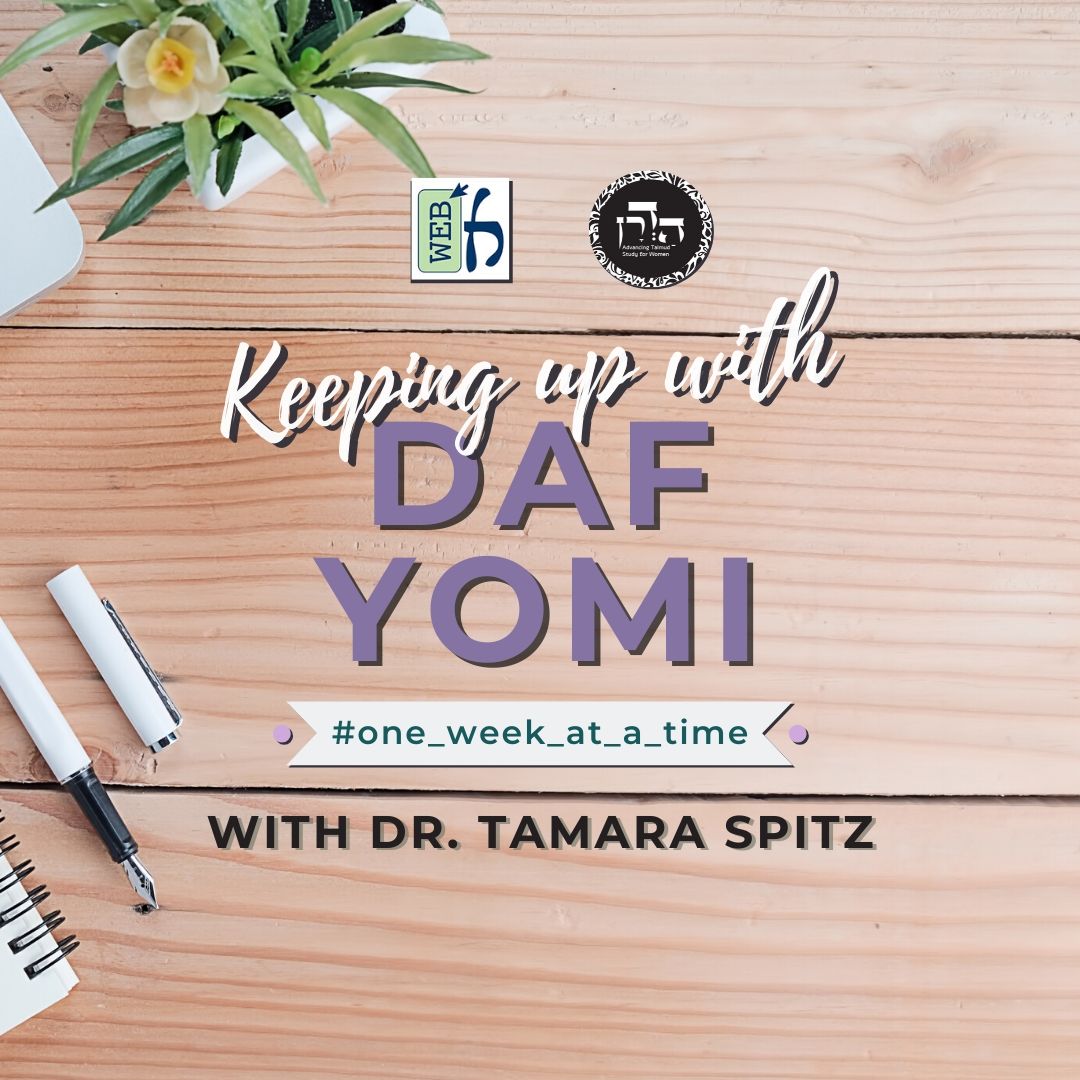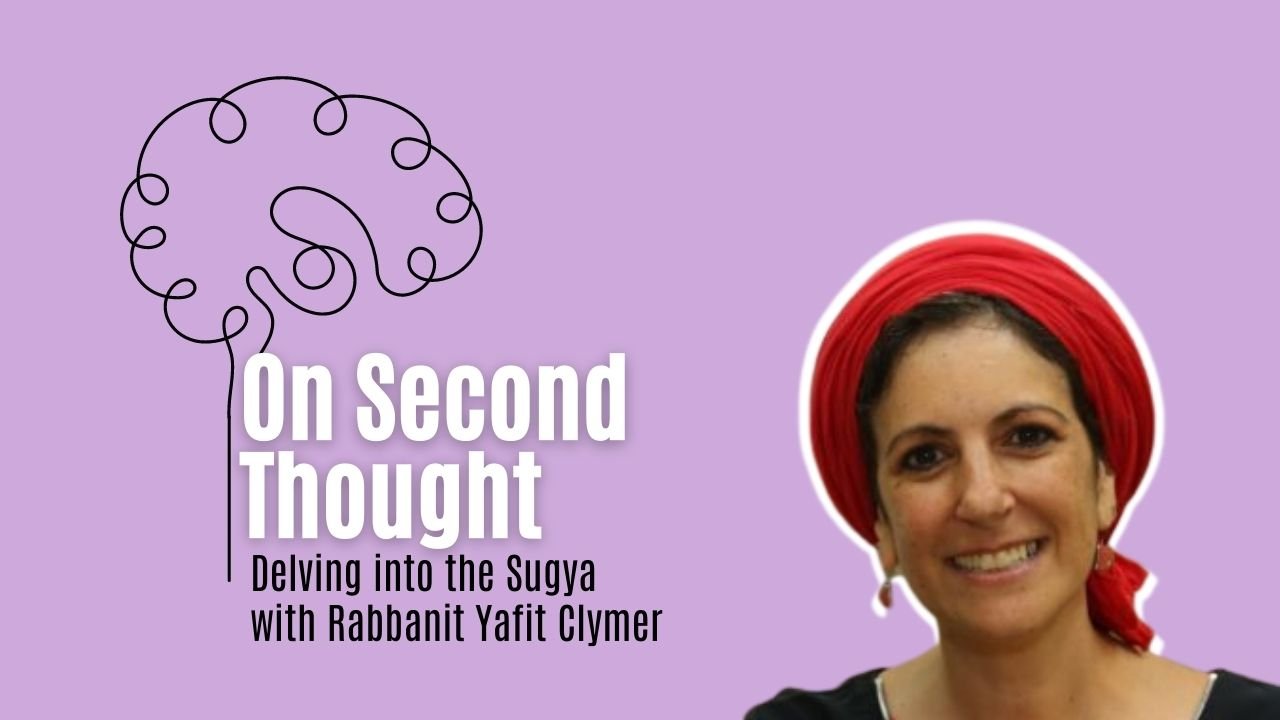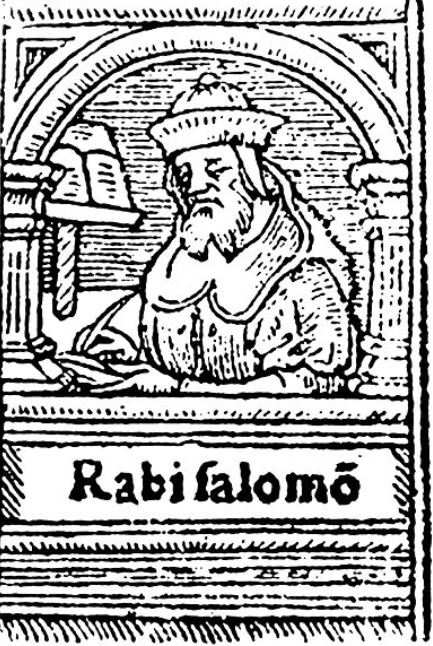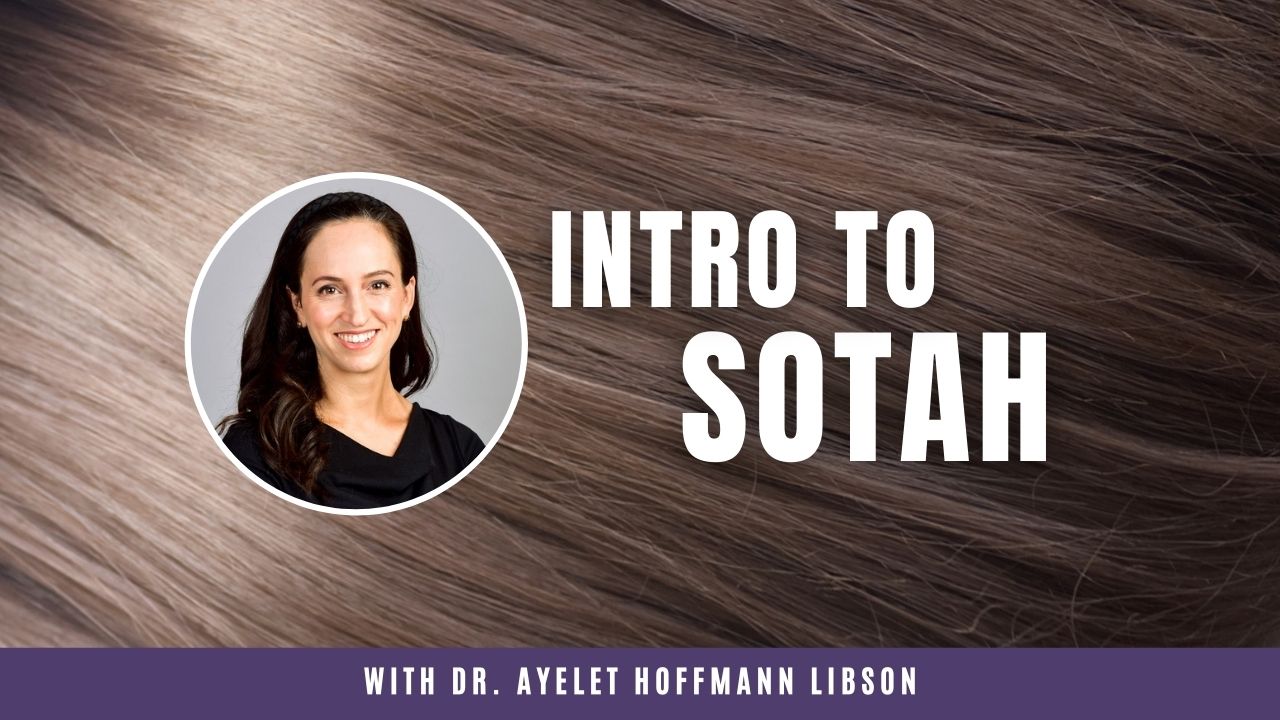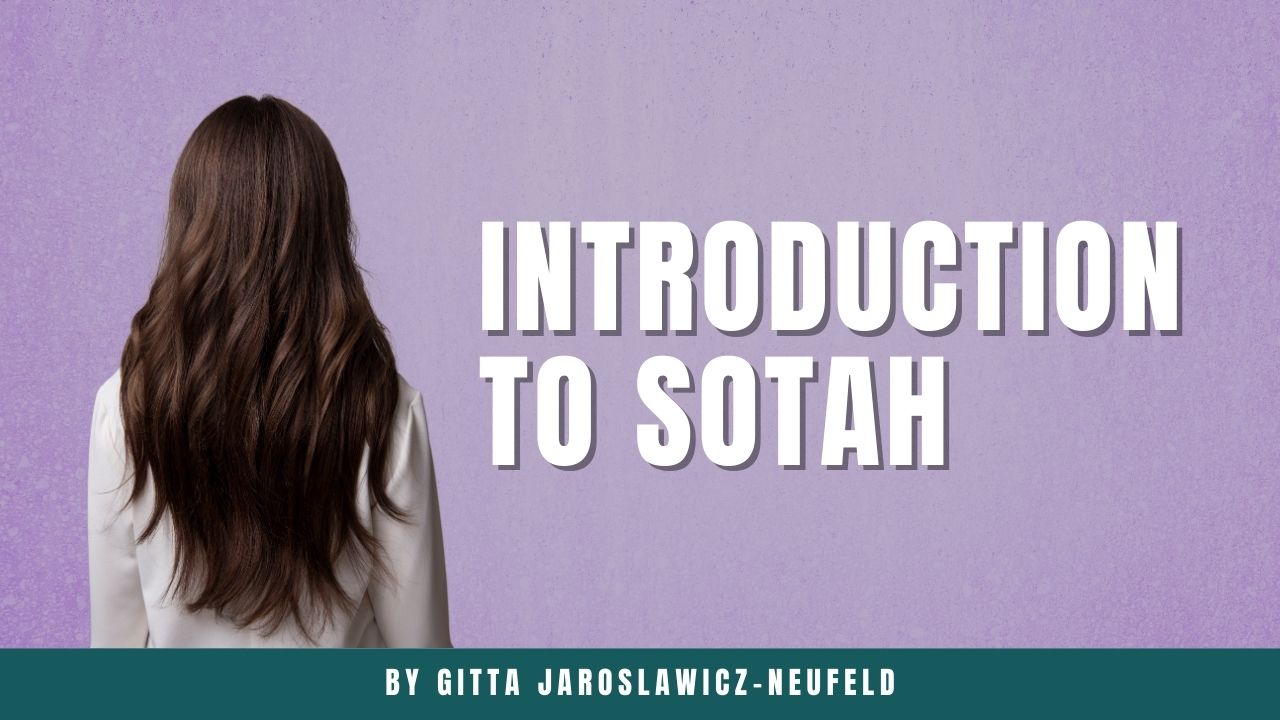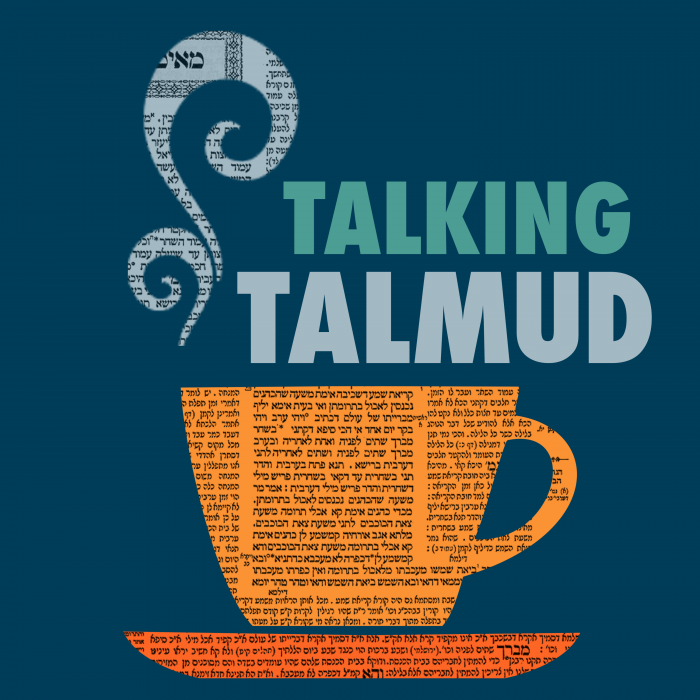Sotah 2
הַמְקַנֵּא לְאִשְׁתּוֹ, רַבִּי אֱלִיעֶזֶר אוֹמֵר: מְקַנֵּא לָהּ עַל פִּי שְׁנַיִם, וּמַשְׁקָהּ עַל פִּי עֵד אֶחָד, אוֹ עַל פִּי עַצְמוֹ. רַבִּי יְהוֹשֻׁעַ אוֹמֵר: מְקַנֵּא לָהּ עַל פִּי שְׁנַיִם, וּמַשְׁקָהּ עַל פִּי שְׁנַיִם.
MISHNA: With regard to one who issues a warning to his wife not to seclude herself with a particular man, so that if she does not heed his warning she will assume the status of a woman suspected by her husband of having been unfaithful [sota], Rabbi Eliezer says: He issues a warning to her based on, i.e., in the presence of, two witnesses for the warning to be effective. If two witnesses were not present for the warning, she is not a sota even if two witnesses saw her seclusion with another man. And the husband gives the bitter water to her to drink based on the testimony of one witness who saw the seclusion, or even based on his own testimony that he himself saw them secluded together, as Rabbi Eliezer holds that only the warning requires witnesses, not the seclusion. Rabbi Yehoshua says: He both issues a warning to her based on two witnesses and gives the bitter water to her to drink based on the testimony of two witnesses.
כֵּיצַד מְקַנֵּא לָהּ? אוֹמֵר לָהּ בִּפְנֵי שְׁנַיִם: ״אַל תְּדַבְּרִי עִם אִישׁ פְּלוֹנִי״, וְדִבְּרָה עִמּוֹ — עֲדַיִין הִיא מוּתֶּרֶת לְבֵיתָהּ וּמוּתֶּרֶת לֶאֱכוֹל בִּתְרוּמָה.
The mishna asks: How does he issue a warning to her in an effective manner? If he says to her in the presence of two witnesses: Do not speak with the man called so-and-so, and she nevertheless spoke with him, she is still permitted to her home, i.e., she is permitted to engage in sexual intercourse with her husband, and if she is the wife of a priest she is still permitted to partake of teruma.
נִכְנְסָה עִמּוֹ לְבֵית הַסֵּתֶר וְשָׁהֲתָה עִמּוֹ כְּדֵי טוּמְאָה — אֲסוּרָה לְבֵיתָהּ, וַאֲסוּרָה לֶאֱכוֹל בִּתְרוּמָה. וְאִם מֵת — חוֹלֶצֶת וְלֹא מִתְיַיבֶּמֶת.
However, if after he told her not to speak with so-and-so, she entered into a secluded place and remained with that man long enough to become defiled, i.e., sufficient time to engage in sexual intercourse, she is forbidden to her home from that moment until she undergoes the sota rite. And likewise, if she was the wife of a priest she is prohibited from partaking of teruma, as she was possibly disqualified by her infidelity, so long as her innocence is not proven by means of the bitter water. And if her husband dies childless before she drinks the bitter water, she performs ḥalitza with her late husband’s brother and may not enter into levirate marriage, as, if she had been unfaithful, levirate marriage is forbidden.
גְּמָ׳ מִכְּדֵי תַּנָּא מִנָּזִיר סָלֵיק, מַאי תְּנָא דְּקָא תָּנֵא סוֹטָה?
GEMARA: The Gemara questions the placement of this tractate within the mishnaic order of Nashim. Now, the tanna arose from tractate Nazir, which is the tractate preceding Sota in the order of the Mishna. What did he teach in Nazir that required that he teach tractate Sota immediately afterward, as at first glance there seems to be no connection between this tractate and Nazir?
כִּדְרַבִּי. דְּתַנְיָא, רַבִּי אוֹמֵר: לָמָּה נִסְמְכָה פָּרָשַׁת נָזִיר לְפָרָשַׁת סוֹטָה, לוֹמַר לָךְ: שֶׁכׇּל הָרוֹאֶה סוֹטָה בְּקִלְקוּלָהּ — יַזִּיר עַצְמוֹ מִן הַיַּיִן.
The Gemara answers: This was done in accordance with the statement of Rabbi Yehuda HaNasi with regard to the sequence of passages in the Torah, as it is taught in a baraita that Rabbi Yehuda HaNasi says: Why is the portion of a nazirite (Numbers, chapter 6) placed adjacent to the portion of a sota (Numbers, chapter 5)? This was done to tell you that anyone who sees a sota in her disgrace as she undergoes the rite of the bitter water should renounce wine, as wine is one of the causes of sexual transgression, as it loosens inhibitions. For the same reason that the Torah teaches these passages one after the other, Rabbi Yehuda HaNasi arranged these tractates one after the other.
וְלִיתְנֵי סוֹטָה, וַהֲדַר לִיתְנֵי נָזִיר! אַיְּידֵי דִּתְנָא כְּתוּבּוֹת וּתְנָא ״הַמַּדִּיר״, תְּנָא נְדָרִים. וְאַיְּידֵי דִּתְנָא נְדָרִים — תְּנָא נָזִיר, דְּדָמֵי לִנְדָרִים. וְקָתָנֵי סוֹטָה, כִּדְרַבִּי.
The Gemara asks: But if so, let him teach tractate Sota first and then let him teach tractate Nazir, which is the way these topics are ordered in the Torah, and also accords better with the statement of Rabbi Yehuda HaNasi. The Gemara answers: Since the tanna taught tractate Ketubot, and in that tractate he taught a chapter that begins: One who vows, in which there are several mishnayot concerning vows between husbands and wives, he then taught tractate Nedarim, whose subject is the halakhot of vows. And since he taught tractate Nedarim, he then taught tractate Nazir, which is similar to tractate Nedarim in that one becomes a nazirite by taking a vow. And he then teaches tractate Sota, in accordance with the statement of Rabbi Yehuda HaNasi.
״הַמְקַנֵּא״, דִּיעֲבַד — אִין, לְכַתְּחִילָּה — לָא. קָסָבַר תַּנָּא דִּידַן: אָסוּר לְקַנּאוֹת.
§ The Gemara begins clarifying the mishna. The mishna states: One who issues a warning to his wife. By employing the descriptive phrase: One who issues a warning, and not the prescriptive phrase: One issues a warning, the tanna indicates that after the fact, yes, it is effective if he issues a warning in this manner, but ideally, no, one should not issue a warning to his wife at all ab initio. Apparently, the tanna of our mishna holds that it is prohibited to issue a warning to one’s wife ab initio in a manner that can cause her to become a sota, and all the halakhot concerning a sota are for one who issued a warning when not obligated to do so.
אָמַר רַב שְׁמוּאֵל בַּר רַב יִצְחָק: כִּי הֲוָה פָּתַח רֵישׁ לָקִישׁ בְּסוֹטָה, אָמַר הָכִי: אֵין מְזַוְּוגִין לוֹ לְאָדָם אִשָּׁה אֶלָּא לְפִי מַעֲשָׂיו, שֶׁנֶּאֱמַר: ״כִּי לֹא יָנוּחַ שֵׁבֶט הָרֶשַׁע עַל גּוֹרַל הַצַּדִּיקִים״. אָמַר רַבָּה בַּר בַּר חָנָה אָמַר רַבִּי יוֹחָנָן: וְקָשִׁין לְזַוְּוגָן כִּקְרִיעַת יַם סוּף, שֶׁנֶּאֱמַר: ״אֱלֹהִים מוֹשִׁיב יְחִידִים בַּיְתָה מוֹצִיא אֲסִירִים בַּכּוֹשָׁרוֹת״.
Rav Shmuel bar Rav Yitzḥak says: When Reish Lakish would introduce his discussion of the Torah passage of sota he would say this: Heaven matches a woman to a man only according to his actions, as it is stated: “For the rod of wickedness shall not rest upon the lot of the righteous” (Psalms 125:3), indicating that if one has a wicked wife it is due to his own evil conduct. Rabba bar bar Ḥana says that Rabbi Yoḥanan says: And it is as difficult to match a couple together as was the splitting of the Red Sea, as it is stated in a verse that speaks of the exodus from Egypt: “God makes the solitary individuals dwell in a house; He brings out prisoners into prosperity [bakosharot]” (Psalms 68:7). God takes single individuals and causes them to dwell in a house by properly matching a man to a woman. This is similar to the exodus from Egypt, which culminated in the splitting of the Red Sea, where He released prisoners into prosperity.
אִינִי? וְהָא אָמַר רַב יְהוּדָה אָמַר רַב: אַרְבָּעִים יוֹם קוֹדֶם יְצִירַת הַוָּלָד בַּת קוֹל יוֹצֵאת וְאוֹמֶרֶת: בַּת פְּלוֹנִי לִפְלוֹנִי, בֵּית פְּלוֹנִי לִפְלוֹנִי, שְׂדֵה פְלוֹנִי לִפְלוֹנִי! לָא קַשְׁיָא: הָא — בְּזוּג רִאשׁוֹן, הָא — בְּזוּג שֵׁנִי.
The Gemara asks: Is that so that a man is matched to a woman according to his actions? But Rav Yehuda says that Rav says: Forty days before an embryo is formed a Divine Voice issues forth and says: The daughter of so-and-so is destined to marry so-and-so; such and such a house is destined to be inhabited by so-and-so; such and such a field is destined to be farmed by so-and-so. This clearly states that these matters, including marriage, are decreed for a person even before he is formed. The Gemara answers: This is not difficult. This statement that Rav Yehuda says in the name of Rav is with regard to a first match [zivug], while this statement of Rabba bar bar Ḥana in the name of Rabbi Yoḥanan is with regard to a second match. A first match is decreed in heaven; a second match is according to one’s actions.
רַבִּי אֱלִיעֶזֶר אוֹמֵר: מְקַנֵּא לָהּ עַל פִּי שְׁנַיִם וְכוּ׳. עַד כָּאן לָא פְּלִיגִי אֶלָּא בְּקִינּוּי וּסְתִירָה, אֲבָל בְּטוּמְאָה — עֵד אֶחָד מְהֵימַן.
§ The Gemara now clarifies the dispute in the mishna. Rabbi Eliezer says: The husband must issue a warning to her based on, i.e., in the presence of, two witnesses, and he gives the bitter water to her to drink based on the testimony of one witness. Rabbi Yehoshua says: He both issues a warning to her based on two witnesses and gives the bitter water to her to drink based on the testimony of two witnesses who saw them secluded together. The Gemara notes: Rabbi Eliezer and Rabbi Yehoshua disagree only with regard to the requisite number of witnesses for the warning and the seclusion, whether one or two witnesses are required, but with regard to the testimony concerning defilement after the warning was issued and seclusion had occurred, they agree that even the testimony of one witness is deemed credible to establish that the woman actually engaged in sexual intercourse with the man while secluded.
וּתְנַן נָמֵי: עֵד אֶחָד אוֹמֵר ״אֲנִי רָאִיתִי שֶׁנִּיטְמֵאת״ — לֹא הָיְתָה שׁוֹתָה.
The Gemara comments: And we learned also in another mishna (31a) that if a single witness says: I saw that she was defiled, then she would not drink the bitter water, as the testimony is accepted, and her husband must divorce her and she forfeits payment of her marriage contract. Therefore, there is no need to perform the sota rite.
מִדְּאוֹרָיְיתָא מְנָלַן דִּמְהֵימַן עֵד אֶחָד? דְּתָנוּ רַבָּנַן: ״וְעֵד אֵין בָּהּ״, בִּשְׁנַיִם הַכָּתוּב מְדַבֵּר.
The Gemara asks: By Torah law, from where do we derive that one witness is deemed credible with regard to testifying that a sota engaged in sexual intercourse? The Gemara answers: As the Sages taught in reference to the verse describing the circumstances in which a woman defiled through an act of adultery becomes forbidden to her husband, which states: “And a man lie with her carnally and it be hid from the eyes of her husband, she being defiled secretly, and there is no witness [ed] against her” (Numbers 5:13), the verse is speaking of a lack of two witnesses. When the verse refers to the lack of an ed, written in the singular, it actually indicates that there are not two witnesses against her, but only one, as the baraita will now explain.
אוֹ אֵינוֹ אֶלָּא אֲפִילּוּ בְּאֶחָד? תַּלְמוּד לוֹמַר: ״לֹא יָקוּם עֵד אֶחָד בְּאִישׁ״.
The baraita continues and asks: Or perhaps the verse is referring only to a case where there was not even one witness to the act of sexual intercourse, as the singular usage of the word ed would seem to indicate? The baraita now proves that elsewhere the word ed is used to indicate two witnesses, as the verse states: “One witness [ed] shall not rise up against a man for any iniquity or any sin that he sins; by the mouth of two witnesses or by the mouth of three witnesses shall a matter be established” (Deuteronomy 19:15).
מִמַּשְׁמַע שֶׁנֶּאֱמַר ״לֹא יָקוּם עֵד בְּאִישׁ״, אֵינִי יוֹדֵעַ שֶׁהוּא אֶחָד? מָה תַּלְמוּד לוֹמַר ״אֶחָד״? זֶה בָּנָה אָב: כׇּל מָקוֹם שֶׁנֶּאֱמַר ״עֵד״ — הֲרֵי כָּאן שְׁנַיִם, עַד שֶׁיִּפְרוֹט לְךָ הַכָּתוּב ״אֶחָד״.
The baraita infers a general principle from this verse by asking: By inference from that which is stated in the verse, even with the omission of the word “one”: “A witness shall not rise up against a man” (Deuteronomy 19:15), do I not know that it is referring to one witness, as the term “rise up [yakum]” is written in the singular form? What is the meaning when the verse states explicitly: “One witness,” since it is obviously referring to only one witness? The baraita answers: This established a paradigm that every place where the word “witness [ed]” is stated in the Torah without specifying a number, there are two witnesses here, unless the verse specifies that it is referring to only one witness by writing the word “one.”
וְאָמַר רַחֲמָנָא: תְּרֵי לֵית בַּהּ אֶלָּא חַד, ״וְהִיא לֹא נִתְפָּשָׂה״ — אֲסוּרָה.
The baraita returns to discuss the verse concerning a sota. And the Merciful One states: “There is no witness [ed] against her” (Numbers 5:13), which therefore means that there are not two witnesses to the sexual intercourse that could testify with regard to her; rather, there is only one witness. The baraita completes its interpretation: Further in the verse it states: “And she was not taken,” indicating that the verse is referring to a case in which it is known that the woman had not been raped. This knowledge is based on the testimony of only one witness, as the verse had already stated that there were not two witnesses, and since one witness saw her willingly engage in sexual intercourse with another man, she is forbidden.
אֶלָּא טַעְמָא דִּכְתִיב ״לֹא יָקוּם עֵד אֶחָד בְּאִישׁ״, הָא לָאו הָכִי הֲוָה אָמֵינָא ״עֵד״ דְּסוֹטָה חַד הוּא. וְאִי אֲפִילּוּ חַד לֵיכָּא, אֶלָּא בְּמַאי מִיתַּסְרָא?
The Gemara questions this reasoning: But this would seem to indicate that the only reason to interpret the verse concerning a sota as referring to a case where there is only one witness is that it is written in the other verse: “One witness shall not rise up against a man” (Deuteronomy 19:15), indicating that any unspecified usage of the word ed in the Torah refers to two witnesses, but were it not for this inference, I would say that when the term witness is employed in the verse concerning a sota it is referring to one witness. However, this would mean that the woman is forbidden to her husband even if there is not even one witness who saw the alleged sexual intercourse, and if there is not even one witness to testify, then with what testimony does she become forbidden to her husband? Obviously, even without another verse, it must be understood that the verse is indicating that there are not two witnesses but there is one, or else there would be no testimony to her actions.
אִיצְטְרִיךְ, סָלְקָא דַּעְתָּךְ אָמֵינָא: ״עֵד אֵין בָּהּ״ — אֵין נֶאֱמָן בָּהּ.
The Gemara answers: It was necessary to infer the interpretation of the verse concerning the sota from the other verse mentioning one witness. Otherwise it might enter your mind to say that the verse here that states: “There is no witness against her,” means that a single witness testifying about the sexual intercourse is not deemed credible with regard to her under any circumstances, and the testimony of one witness is not accepted in the case of a sota.
אֵין נֶאֱמָן בָּהּ?! וְאֶלָּא מַאי בָּעֵי —
The Gemara questions this analysis: What would be the logic in interpreting the verse as indicating that a single witness is not deemed credible with regard to her? But if that is the interpretation, what does the verse require in order for a sota to be rendered forbidden?
עַד דְּאִיכָּא תְּרֵי? לִישְׁתּוֹק קְרָא מִינֵּיהּ. דְּאָתְיָא ״דָּבָר״ ״דָּבָר״ מִמָּמוֹן. וַאֲנָא יָדַעְנָא, מִידֵּי דְּהָוֵה אַכׇּל עֵדֻיוֹת שֶׁבַּתּוֹרָה!
The Gemara explains its question: If the verse is understood as indicating that a woman isn’t forbidden until there are two witnesses to testify to her infidelity, then let the verse be silent from any mention of witnesses, as the requirement for two witnesses in matters of sexual impropriety is derived by means of a verbal analogy from the word “matter” written with regard to forbidden relations, and the word “matter” written with regard to monetary matters. The verbal analogy by which it is learned that two witnesses are required is as follows: A verse concerning forbidden relations states: “Because he has found some unseemly matter about her” (Deuteronomy 24:1), and a verse concerning monetary matters states: “By the mouth of two witnesses or by the mouth of three witnesses shall a matter be established” (Deuteronomy 19:15). And I would know that the requirement that two witnesses testify applies in the case of a sota, just as it does in all other matters of testimony in the Torah.
אִיצְטְרִיךְ, סָלְקָא דַּעְתָּךְ אָמֵינָא: סוֹטָה שָׁאנֵי, דְּרַגְלַיִם לְדָבָר, שֶׁהֲרֵי קִינֵּא לָהּ וְנִסְתְּרָה — לִיתְהֵימַן בַּהּ עֵד אֶחָד.
The Gemara answers: It was necessary that the verse be stated in the case of a sota as well, for it might enter your mind to say that testimony concerning a sota is different from other testimony, and even testimony of one witness would be sufficient because there is a basis for anticipating the matter. Since the husband issued a warning to her about this particular man and she then secluded herself with him, perhaps even one witness should be deemed credible with regard to her. Therefore, the verse informs us that one witness is not deemed credible to render her forbidden to her husband.
וּמִי מָצֵית אָמְרַתְּ דְּאֵין נֶאֱמָן בָּהּ וְשַׁרְיָא? וְהָא מִדִּכְתִיב ״וְהִיא לֹא נִתְפָּשָׂה״ — מִכְּלָל דַּאֲסוּרָה!
The Gemara asks another question concerning its earlier analysis: But how can you think to say that the verse would be stating that one witness is not deemed credible with regard to her having engaged in sexual intercourse and she would remain permitted to her husband? But from the continuation of the same verse, from the fact that it is written: “And she was not taken,” which indicates that the verse is referring to a case where she was not raped, one concludes by inference that the verse is referring to a woman who becomes forbidden to her husband for engaging in consensual adulterous sexual intercourse.
אִיצְטְרִיךְ, סָלְקָא דַּעְתָּךְ אָמֵינָא: אֵין נֶאֱמָן בָּהּ — עַד דְּאִיכָּא תְּרֵי, וּבִתְרֵי נָמֵי ״הִיא דְּלֹא נִתְפָּשָׂה״, קָא מַשְׁמַע לַן.
The Gemara answers: Nevertheless, it still was necessary to teach the principle derived from the other verse that the term “ed” is referring to two witnesses even in the context of a sota, as it might enter your mind to say that the verse should be understood to mean that one witness is not deemed credible with regard to her, and she remains permitted until there are two witnesses who testify to the sexual intercourse, and with the testimony of two witnesses as well, it is only when she was not seized and forced to cohabit with the man. Therefore, to refute this possible interpretation, the baraita teaches us that “ed” always refers to two witnesses unless stated otherwise. Therefore, the phrase in the verse concerning a sota that says: “There is no witness [ed] against her,” means that there were not two witnesses, but if there was only one witness he is deemed credible.
רַבִּי יְהוֹשֻׁעַ אוֹמֵר: מְקַנֵּא לָהּ עַל פִּי שְׁנַיִם וְכוּ׳. מַאי טַעְמָא דְּרַבִּי יְהוֹשֻׁעַ? אָמַר קְרָא: ״בָּהּ״ — בָּהּ וְלֹא בְּקִינּוּי, ״בָּהּ״ — וְלֹא בִּסְתִירָה.
The mishna teaches that Rabbi Yehoshua says: He both issues a warning to her based on two witnesses, and he gives the bitter water to her to drink based on the testimony of two witnesses who saw her secluded. The Gemara asks: What is the reasoning of Rabbi Yehoshua? The Gemara answers: The verse states: “And there is no witness [ed] against her [bah]” (Numbers 5:13), which was explained to mean there were not two witnesses, but only one, who testified concerning her defilement. Rabbi Yehoshua derives from the term bah, which could also be understood as: With regard to it, that in this matter of defilement one witness suffices, but not with regard to the warning. Additionally, he derives: With regard to it, but not with regard to the seclusion. Therefore, there must be two witnesses to testify about both the warning and the seclusion.
וְרַבִּי אֱלִיעֶזֶר אוֹמֵר: ״בָּהּ״ — וְלֹא בְּקִינּוּי.
The Gemara now explains Rabbi Eliezer’s opinion. And Rabbi Eliezer says that the only derivation to be learned is: With regard to it, but not with regard to the warning. Therefore, the warning, unlike the defilement, requires two witnesses. The seclusion is not contrasted with the defilement, and, like the defilement, requires only one.
וְאֵימָא: ״בָּהּ״ וְלֹא בִּסְתִירָה! סְתִירָה אִיתַּקַּשׁ לְטוּמְאָה, דִּכְתִיב: ״וְנִסְתְּרָה וְהִיא נִטְמָאָה״.
The Gemara questions Rabbi Eliezer’s opinion: But why not say that one should also derive: With regard to it, but not with regard to the seclusion, as does Rabbi Yehoshua? The Gemara answers: Rabbi Eliezer does not accept that derivation, as seclusion is juxtaposed to defilement by the verse, as it is written: “And she was defiled secretly” (Numbers 5:13), and the term “secretly” is referring to seclusion. Therefore, the same halakha should apply to both.
קִינּוּי נָמֵי אִיתַּקַּשׁ לְטוּמְאָה, דִּכְתִיב: ״וְקִנֵּא אֶת אִשְׁתּוֹ וְהִיא נִטְמָאָה״! הָא מִיעֵט רַחֲמָנָא ״בָּהּ״.
The Gemara asks: But the warning is also juxtaposed to defilement, as it is written: “And he warned his wife, and she had become defiled” (Numbers 5:14) and the same halakha should apply to both. The Gemara answers: The Merciful One excluded at least one of the two by use of the expression bah, which teaches that in one matter other than defilement, two witnesses are required.
וּמָה רָאִיתָ? מִסְתַּבְּרָא סְתִירָה עֲדִיפָא, שֶׁכֵּן אוֹסַרְתָּהּ כְּטוּמְאָה.
The Gemara asks: And what did you see to determine that the exclusion from the halakha of one witness sufficing is with regard to the warning? Perhaps the exclusion from the halakha of one witness sufficing is with regard to the seclusion. The Gemara answers: It stands to reason that it is preferable to compare seclusion to defilement, as testimony with regard to seclusion forbids her to her husband just as testimony with regard to defilement does.
אַדְּרַבָּה: קִינּוּי עָדִיף, שֶׁכֵּן עִיקָּר גָּרַם לָהּ.
The Gemara rejects this reasoning: On the contrary, it is preferable to compare the warning to the defilement, as it is the main cause of her becoming forbidden. Seclusion alone, absent a warning, would not cause her to be forbidden to her husband.
אִי לָאו סְתִירָה, קִינּוּי מִי אִיכָּא? וְאִי לָאו קִינּוּי, סְתִירָה מַאי אַהֲנִי?
The Gemara counters: If there is no seclusion, is there any significance to the warning? The warning results in a prohibition only after the warned woman secludes herself with the man. The Gemara counters: And if there is no warning, what effectiveness does seclusion have? Both the warning and the seclusion are required for her to be forbidden.
אֲפִילּוּ הָכִי, סְתִירָה עֲדִיפָא, דְּאַתְחַלְתָּא דְטוּמְאָה הִיא.
The Gemara concludes: Even so, it is preferable to compare the seclusion to the defilement, as the seclusion is the beginning of defilement. Therefore, just as the testimony of one witness suffices with regard to the defilement, the testimony of one witness suffices with regard to the seclusion.
מַתְנִיתִין דְּלָא כִּי הַאי תַּנָּא. דְּתַנְיָא, רַבִּי יוֹסֵי בְּרַבִּי יְהוּדָה אוֹמֵר מִשּׁוּם רַבִּי אֱלִיעֶזֶר: הַמְקַנֵּא לְאִשְׁתּוֹ — מְקַנֵּא עַל פִּי עֵד אֶחָד אוֹ עַל פִּי עַצְמוֹ, וּמַשְׁקֶה לָהּ עַל פִּי שְׁנַיִם. הֵשִׁיבוּ חֲכָמִים: לְדִבְרֵי רַבִּי יוֹסֵי בְּרַבִּי יְהוּדָה אֵין לַדָּבָר סוֹף.
The Gemara comments: The mishna is not in accordance with the opinion of this tanna, who presents a different version of Rabbi Eliezer’s opinion, as it is taught in a baraita (Tosefta 1:1) that Rabbi Yosei, son of Rabbi Yehuda, says in the name of Rabbi Eliezer: One who issues a warning to his wife issues a warning based on one witness or based on his own testimony, and he gives the bitter water to her to drink based on the testimony of two witnesses who saw her secluded. The baraita further states that the Rabbis responded: According to the statement of Rabbi Yosei, son of Rabbi Yehuda, as to Rabbi Eliezer’s opinion that one need not issue a warning in the presence of two witnesses, there is no end to the matter, as the Gemara will explain.
מַאי טַעְמָא דְּרַבִּי יוֹסֵי בְּרַבִּי יְהוּדָה? אָמַר קְרָא ״בָּהּ״ — בָּהּ וְלֹא בִּסְתִירָה.
The Gemara explains: What is the reasoning of Rabbi Yosei, son of Rabbi Yehuda? The verse states: “Bah,” from which he infers that one witness suffices to testify with regard to it, i.e., the defilement, but not with regard to seclusion, as above.
וְאֵימָא: ״בָּהּ״ וְלֹא בְּקִינּוּי? קִינּוּי אִיתַּקַּשׁ לְטוּמְאָה, דִּכְתִיב: ״וְקִנֵּא אֶת אִשְׁתּוֹ וְהִיא נִטְמָאָה״.
The Gemara asks: But why not say that one should also derive: With regard to it, but not with regard to the warning? The Gemara answers: The warning is juxtaposed to defilement, as it is written: “And he warned his wife, and she had become defiled” (Numbers 5:14), and the same halakha should apply to both.
סְתִירָה נָמֵי אִיתַּקַּשׁ לְטוּמְאָה, דִּכְתִיב: ״וְנִסְתְּרָה וְהִיא נִטְמָאָה״?! הַהוּא, לְכַמָּה שִׁיעוּר סְתִירָה — כְּדֵי טוּמְאָה, הוּא דַּאֲתָא.
The Gemara counters this argument: Seclusion is also juxtaposed in the verse to defilement, as it is written: “And she was defiled secretly” (Numbers 5:13). Therefore, the same halakha should apply to both. The Gemara responds: That verse is coming to teach how much is the measure of seclusion, i.e., the amount of time that the man and woman must be secluded together for it to be defined as seclusion, which, as the comparison indicates, is the amount of time sufficient for defilement.
הֵשִׁיבוּ חֲכָמִים: לְדִבְרֵי רַבִּי יוֹסֵי בְּרַבִּי יְהוּדָה אֵין לַדָּבָר סוֹף. מַאי נִיהוּ? דְּזִמְנִין דְּלָא קַנִּי וְאָמַר ״קַנַּאי״.
The Gemara continues to clarify the baraita. The Rabbis responded: According to the statement of Rabbi Yosei, son of Rabbi Yehuda, as to Rabbi Eliezer’s opinion, there is no end to the matter. The Gemara asks: What is the meaning of: There is no end to the matter? The Gemara answers: It is that there may be times when the husband did not warn his wife but after hearing of her seclusion with another man says: I warned her, which will be sufficient to render her forbidden to him until she drinks.
הָא לְמִשְׁנָתֵינוּ יֵשׁ לַדָּבָר סוֹף? זִמְנִין דְּלָא אִיסְתַּתַּר וְאָמַר ״אִיסְתַּתַּר״!
The Gemara is puzzled by this logic: But according to our mishna, does the matter in fact have an end? Rabbi Eliezer states in the mishna that a woman must drink the bitter water based upon her husband’s own statement that she secluded herself with the man about whom he had warned her. There too, one could ask whether there may be times when she did not seclude herself with the other man and where her husband says: She secluded herself, thereby rendering her forbidden to him until she drinks the bitter water. If so, why do the Rabbis take issue only with the version of Rabbi Eliezer’s opinion as presented by Rabbi Yosei, son of Rabbi Yehuda, and not with the version recorded in the mishna?
אָמַר רַב יִצְחָק בַּר יוֹסֵף אָמַר רַבִּי יוֹחָנָן: אַף לְדִבְרֵי רַבִּי יוֹסֵי בְּרַבִּי יְהוּדָה אֵין לַדָּבָר סוֹף.
Rav Yitzḥak bar Yosef says that Rabbi Yoḥanan says: The Rabbis in the baraita meant to state that even according to the statement of Rabbi Yosei, son of Rabbi Yehuda, there is no end to the matter. The Rabbis wished to say that even according to his version of Rabbi Eliezer’s opinion, the husband can cause her to drink if he were to lie. The same is obviously true for the mishna.
אַף לְדִבְרֵי רַבִּי יוֹסֵי בְּרַבִּי יְהוּדָה, וְלֹא מִיבַּעְיָא לְמִשְׁנָתֵינוּ? אַדְּרַבָּה: לְמִשְׁנָתֵינוּ אִיכָּא עִיקָּר, הָתָם לֵיכָּא עִיקָּר!
The Gemara notes: The phrase even according to the statement of Rabbi Yosei, son of Rabbi Yehuda, indicates it is a lesser novelty to say that there is no end to the matter according to him, and it is not necessary to say that the same would be true according to the opinion of Rabbi Eliezer cited in our mishna. The Gemara asks: On the contrary, according to the opinion of Rabbi Eliezer cited in our mishna, there is a legitimate basis of suspicion with regard to the woman, as there are witnesses who saw the husband issue a warning to her, and therefore, it is understandable that the testimony of the husband may be relied upon when he testifies that she secluded herself with another man. By contrast, there, according to the opinion of Rabbi Yosei, son of Rabbi Yehuda, there is no legitimate basis to prohibit her to him, since there are no witnesses that she had been warned by her husband at all. Therefore, it may be that the Rabbis took issue only with the version of Rabbi Eliezer’s opinion presented by Rabbi Yosei, son of Rabbi Yehuda.
אֶלָּא אִי אִיתְּמַר — הָכִי אִיתְּמַר, אָמַר רַב יִצְחָק בַּר יוֹסֵף אָמַר רַבִּי יוֹחָנָן: לְדִבְרֵי רַבִּי יוֹסֵי בְּרַבִּי יְהוּדָה, אַף לְמִשְׁנָתֵינוּ אֵין לַדָּבָר סוֹף.
The Gemara clarifies the statement of Rabbi Yoḥanan: Rather, if it was stated, it was stated like this: Rav Yitzḥak bar Yosef says that Rabbi Yoḥanan says that the Rabbis said: According to the statement of Rabbi Yosei, son of Rabbi Yehuda, who is not concerned that accepting the testimony of one person with regard to the warning will enable false claims by the husband, even according to the opinion of Rabbi Eliezer cited in our mishna there is no end to the matter, since the concern there is less severe, as there is no legitimate basis to render her forbidden to her husband.
אָמַר רַב חֲנִינָא מִסּוּרָא: לָא לֵימָא אִינִישׁ לְאִיתְּתֵיהּ בַּזְּמַן הַזֶּה ״לֹא תִּיסָּתְרִי בַּהֲדֵי פְלוֹנִי״, דִּילְמָא קַיְימָא לַן כְּרַבִּי יוֹסֵי בְּרַבִּי יְהוּדָה, דְּאָמַר קִינּוּי עַל פִּי עַצְמוֹ, וּמִיסְתַּתְּרָא, וְלֵיכָּא הָאִידָּנָא מֵי סוֹטָה לְמִיבְדְּקַהּ, וְקָאָסַר לַהּ עִילָּוֵיהּ אִיסּוּרָא דִּלְעוֹלָם.
Rav Ḥanina of Sura says: In the present a man should not say to his wife: Do not seclude yourself with so-and-so. The reason is that perhaps we maintain that the halakha is in accordance with the opinion of Rabbi Yosei, son of Rabbi Yehuda, who says that a warning is effective even based on his own testimony, and if she were then to seclude herself with that man she would be required to drink the bitter water to render herself permitted to her husband, and since today the bitter water of a sota is not used to evaluate her fidelity and permit her to her husband, he will end up forbidding her to himself with an irrevocable prohibition.
אָמַר רֵישׁ לָקִישׁ: מָה לְשׁוֹן ״קִינּוּי״ — דָּבָר הַמֵּטִיל קִנְאָה בֵּינָהּ לְבֵין אֲחֵרִים. אַלְמָא קָסָבַר קִינּוּי עַל פִּי עַצְמוֹ, וְכוּלֵּי עָלְמָא לָא יָדְעִי דְּקַנִּי לַהּ, וְאָמְרִי: מַאי דְּקַמָּא דְּקָא בָּדְלָה, וְאָתוּ לְמִיעְבַּד קִנְאָה בַּהֲדַהּ.
§ Reish Lakish says: What is the meaning of the term: Warning [kinnui]? It means a matter that causes anger [kina] between her and others, as other men will not understand why she does not wish to be friendly with them any longer. The Gemara comments: Apparently, he holds that a warning is effective based on the husband’s own testimony, and therefore everyone else will not know that her husband issued a warning to her, and they will say: What is this matter happening before us that she separates herself from us, and they will come to act in anger with her.
וְרַב יֵימַר בַּר רַבִּי שֶׁלֶמְיָא מִשְּׁמֵיהּ דְּאַבָּיֵי אָמַר: דָּבָר הַמֵּטִיל קִנְאָה בֵּינוֹ לְבֵינָהּ. אַלְמָא קָסָבַר קִינּוּי עַל פִּי שְׁנַיִם עֵדִים, וְכוּלֵּי עָלְמָא יָדְעִי דְּקַנִּי לַהּ, וְאִיהוּ הוּא דְּאָתֵי לְמִיעְבַּד קִנְאָה בַּהֲדַהּ.
And Rav Yeimar bar Rabbi Shelemya says in the name of Abaye: The term kinnui means a matter that causes anger between him and her, i.e., between husband and wife. The Gemara comments: Apparently, he holds that a warning is effective based on the testimony of two witnesses. And since there are two witnesses, everyone knows that he issued a warning to her. Therefore, the warning does not cause anger between her and others. And the husband is he who will come to act in anger with her, as they will have mutual antagonism toward each other.



